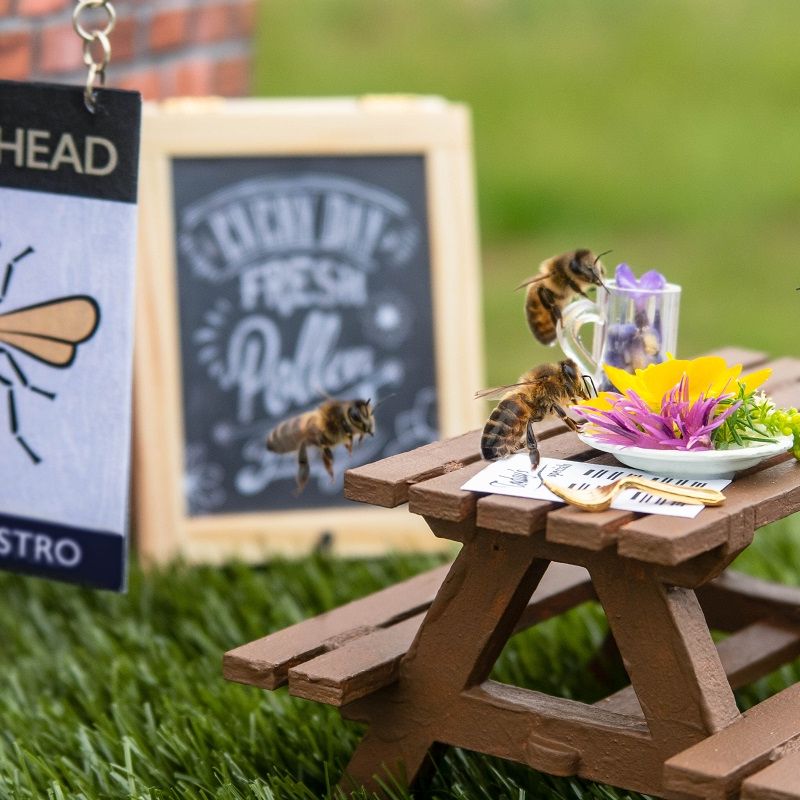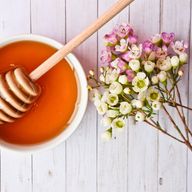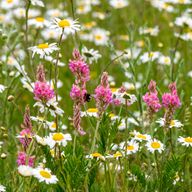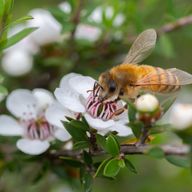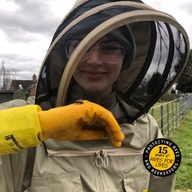
Introducing the world’s tiniest bee-r garden as part of our Hives for Lives initiative! We created the tiny bee-stro to help raise awareness of just how important pollinator-friendly, nectar-rich blooms are at this time of year for bees and other pollinating insects.
Named the Queen’s Head, the miniature venue features petite plates, miniature menus and pocket-sized picnic tables.
Its pollinator patrons can choose from a selection of specials on the Rowse Beestro menu, from a borage burger and poppydoms to lavender lemonade and a sunflower sundae.
The full menu features some of the most nectar-rich flowers the UK has to offer, including bramble, lavender and marjoram.
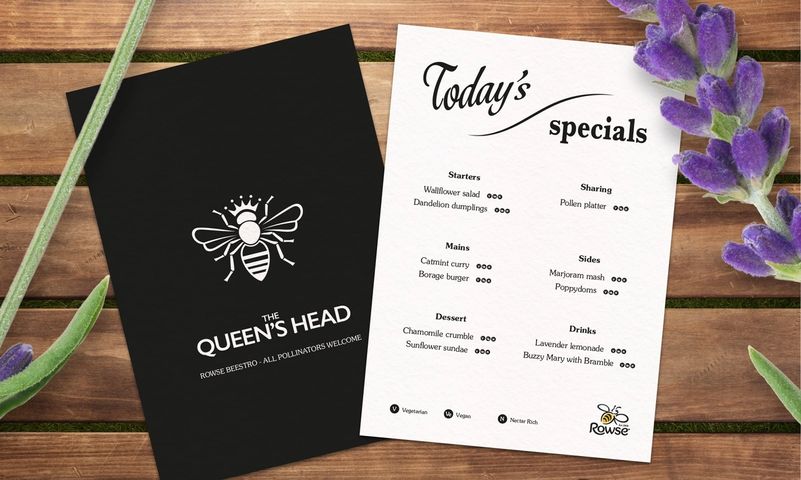
Despite colourful blooms being synonymous with the summer, there still aren’t enough pollen and nectar-rich flowers to keep the humble honey-makers and other solitary bees satisfied. With such a heightened need from our buzzing buddies during the summer season, we need to do all we can to help feed them.
“Our Hives for Lives programme is all about supporting the bees and beekeepers. We work with three partners to protect the honey-making heroes – the Bee Farmers Association (BFA), Bees For Development (BFD) and The Laboratory of Apiculture and Social Insects (LASI) at the University of Sussex. We have also been working to help replenish vital nectar sources through our Feed the Bees campaign in recent months.“We’d love the public to get involved and help us do just that – whether it’s making your very own bee-r garden or simply planting some of the bees’ favourite nectar-rich flowers in your garden.”
The Queen’s Head is out latest creation designed to create awareness of the UK’s dwindling natural habitat and how disastrous this is for bees and other pollinators. Replenishing vital nectar sources is one of the key pillars of our Hives for Lives programme of vital initiatives to help protect the bees.
“With an array of insects fighting to feast on flowers, there really isn’t enough nectar to go around during the warmer months. All pollinators are important, so it’s our duty to plant enough flowers to enhance their ability to forage for nectar rich flowers.“Bees are vital to the balance of our ecosystem. In fact, they help to pollinate around a third of the food that lands on our plate every day. Without them, our ecosystem would be in trouble, so we need to do our part to help them out, providing as many nectar-rich sources as possible.”
